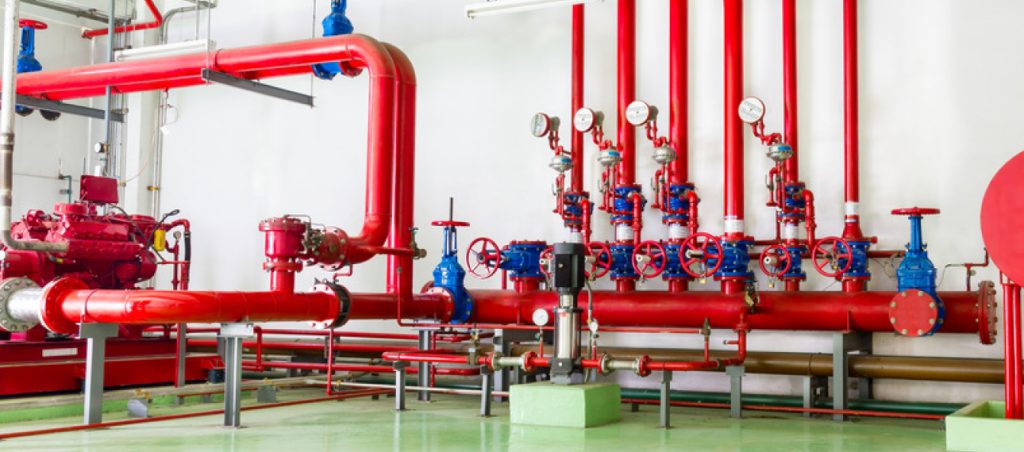
Firefighting Design Syllabus: Master essential fire protection techniques and strategies.
Firefighting Design Syllabus offers a comprehensive training program tailored to equip participants with the necessary skills and knowledge in fire system design and management. From understanding the fundamentals of fire systems to mastering advanced concepts in fire protection, this course provides a holistic approach to ensuring fire safety in diverse environments.
OSHA Construction 30 Hour Course: The OSHA Construction 30 Hour Course is a vital component of this syllabus, focusing on essential safety topics relevant to the construction industry. Covering a wide range of subjects, this course ensures that participants are equipped with the knowledge and skills to recognize and mitigate hazards in construction environments effectively.
- Introduction to Fire System: An overview of the principles and components of fire protection systems, including fire detection, suppression, and alarm systems.
- Classification of Fire: Understanding the different classes of fire and their characteristics, essential for effective fire risk assessment and mitigation.
- Manual Handheld Fire Extinguishers: Detailed exploration of various types of handheld fire extinguishers, their classifications, proper usage procedures, and maintenance requirements.
- Hazard Classification: Identification and classification of fire hazards in different environments, enabling proactive measures for hazard mitigation.
- Active and Passive Fire Protection Systems: In-depth analysis of active and passive fire protection measures, including fire doors, fire-resistant materials, and automatic fire suppression systems.
- Fire Strategy Plan: Developing comprehensive fire strategy plans tailored to specific environments, considering factors such as occupancy, building layout, and fire risk assessment.
- Stairwell Pressurization System: Understanding the design and operation of stairwell pressurization systems to prevent smoke migration during fire incidents.
- Fire Water Sump and Overhead Tank Sizing: Practical guidance on sizing fire water sumps and overhead tanks to ensure an adequate water supply for fire protection systems.
- Sprinklers: Types and Selection: Comprehensive coverage of sprinkler systems, including wet pipe, dry pipe, pre-action, and deluge systems, with a focus on selection criteria and design considerations.
- Fire Standpipe System and Hydrant Selection: Detailed examination of fire standpipe systems and hydrant selection, essential for effective firefighting operations in buildings and outdoor areas.
- Fire Fighting Hydraulic Calculation: Hands-on training in hydraulic calculations for fire protection systems, including head loss calculations, pump head calculations, and pressure calculations for high-rise buildings.
- Zone Control Valve: Understanding the role of zone control valves in fire protection systems and their importance in controlling water distribution during fire incidents.
- Fire Water Pump Selection: Selection criteria and types of fire water pumps, including main pumps, jockey pumps, and diesel pumps, to ensure reliable water supply for fire protection systems.
- FM200 System Designing: Design considerations and calculations for FM200 fire suppression systems, including capacity estimation, pipe sizing, and nozzle selection.
- Fire Alarm System Designing: Comprehensive coverage of fire alarm system design, including smoke detectors, heat detectors, flame detectors, and VESDA aspirating systems.
- Smoke Detectors and Heat Detectors: Types, applications, and installation requirements for smoke detectors and heat detectors in fire protection systems.
- Flame Detectors: Understanding the principles and applications of flame detectors for early fire detection and alarm activation.
- VESDA Aspirating System: Design and implementation of Very Early Smoke Detection Apparatus (VESDA) aspirating systems for reliable and early detection of smoke particles.
Course Features:
- 30 Hours Training
- Exam Result
- Laminated Wallet Card
- Training Transcript
- Certificate of Completion
- Download Brochure
Benefits:
- Understand OSHA’s mission, jurisdiction, and standards.
- Recognize workplace hazards associated with construction activities.
- Identify elements of an effective safety and health management system.
- Analyze various types of personal protective equipment (PPE) and its usage in the workplace.
- Learn hazard control methods for fall protection, material handling, confined space, excavation, and scaffolds.
- Understand OSHA’s requirements for walking/working surfaces, handrails, and stairs.
Satisfaction Guarantee: Safety is paramount for any organization. We guarantee 100% satisfaction with our services and products. We provide lifetime support and assistance to our valued customers, available 24/7 to offer help and guidance whenever needed.
The course is open to individuals from various backgrounds who are interested in enhancing their knowledge and skills in fire system design and management. There are no specific admission requirements, making it accessible to anyone with a passion for fire safety.
Meet Our Expert Instructors
Our team of experienced instructors comprises industry experts with extensive practical experience in fire system design and implementation. They bring a wealth of knowledge and real-world insights to the classroom, ensuring that participants receive high-quality instruction and guidance throughout the course.
Admissions Office Hours:
- Monday to Friday: 9:00 AM to 5:00 PM
- Saturday: 10:00 AM to 2:00 PM
Admissions Office Location: Address - 16-10-108, NH 65 Above De Cafe Studio, 2nd Floor, Jamal Colony, Old Malakpet, Hyderabad, Telangana, 500036
Admissions Email: info@safetyexpertscollege.com
Phone Numbers:
- Miss. Shahnaaz: +91 91829 53922
- Miss. Maheen: +91 82475 48221
Under their expert guidance, you will gain the skills, confidence, and practical insights needed to excel in fire fighting. Join us and let our instructors help you reach new heights in your plumbing career.





